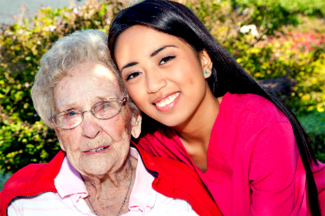DOUBLE SACRIFICE
Filipino workers forced to accept fate as sacrifice in Covid-19 fight

LOIDA UBAY KNOWS ALL ABOUT SACRIFICE. The kind she welcomes and the kind she can’t avoid.
Loida is a building cleaner, an essential service worker, one of our new army of “everyday heroes.” But she was already a hero long before Covid-19. Loida has been sending money back home to family in the Philippines ever since she left 37 years ago. The Philippine government started calling people like Loida “bagong bayani,” (“new heroes”) in 1984.
In her 37 years working abroad, Loida has supported her parents and eight nieces and nephews in the Philippines.
“Of course, everybody has a dream to study for better wages,” says Loida. But the responsibility of sending money to her family back home proved too demanding. “So I work, work, work.”
Today, Loida has three cleaning jobs. Even though COVID-19 has reduced her hours, she still works more than 60 hours a week, seven days a week. The bulk of her work is a job cleaning a downtown Vancouver office for minimum wage.
About half her income goes to family. Despite the reduced hours due to COVID-19, she still sends money twice a month to her parents and is still supporting the education of one niece and nephew.
These days, in addition to money, Loida sends her family a balikbayan box—a package sent via cargo, with coffee and canned goods.
‘Sacrificial work’
Many, many Filipinas work as personal care givers. Most of the staff at the Lynn Valley Care Centre in North Vancouver, for example, home to the worst seniors’ home covid outbreak in B.C., are Filipina Canadians.
B.C. provincial health officer Dr. Bonnie Henry acknowledged that the pandemic has caused people of colour to suffer disproportionately.
This highlights how essential work during the pandemic has become “sacrificial work,” said Ethel Tungohan of York University, the Canadian Research Chair in Canadian Migration Policy, Impacts and Activism.
“With the Filipino community stuck working in these essential industries, they’ve become the collateral damage of national economic growth policies,” Turbogan said.
The strong work ethic among Filipinos is so real that it opens them to more risk. In April, for example, Alberta’s chief medical officer said that there’s a “strong ethic in the Filipino community to not let the sniffles get in the way of a hard day’s work.” She did not, however, mention the harsh economic realities and inequalities that drive Filipinos to ignore personal risk and report for work.
Good for both countries
Canada and the Philippines are willing and eager partners in this worker supply chain. The Philippines aggressively trains and encourages workers to go abroad and send money home. While Canada crafts policy to welcome foreign workers to fill labour gaps.
There are now more than 12 million Filipinos in countries like Canada, the U.S. and Saudi Arabia. The Philippines is dependent on overseas workers to sustain the economy. Last year, remittances from the Philippine diaspora reached a record high of $33.5 billion USD—about 9.3 per cent of the Philippines’ GDP.
A 2017 Statistics Canada study found that the top country Canadians sent money to was the Philippines, totalling $1.2 billion.
“The Philippines has transitioned essentially into an agency to supply the world with workers,” said John Paul Catungal of the University of British Columbia’s Social Justice Institute.
The sacrifices Filipino frontline workers make for family inevitably become sacrifices they make for all of us. Supporting all their efforts to win a living wage would be one way to recognize it.
- 30 -













Add new comment